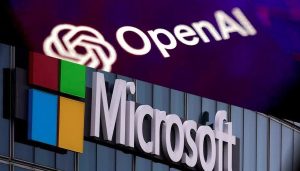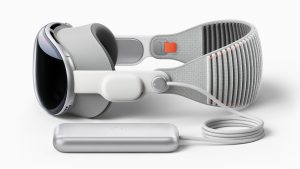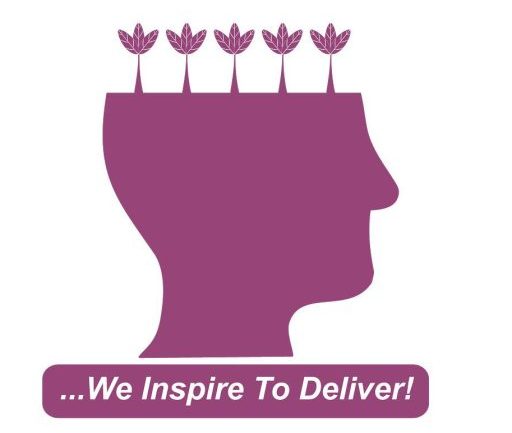Hey, Tech enthusiast! Your Daily Dose of Tech This Tuesday is here @DawentsIT …We Inspire To Deliver!
Here is a detailed summary of the Daily Dose of Technology News for today– July 08, 2025.
1. Microsoft and OpenAI Collaborate on New Cloud AI Supercomputing Infrastructure:
Microsoft and OpenAI revealed a joint initiative to build next-generation AI supercomputing infrastructure hosted on Azure cloud, designed to support the training and deployment of extremely large language models (exceeding 1 trillion parameters).

The infrastructure utilizes cutting-edge photonic chips and innovative cooling technology to dramatically increase energy efficiency and computation speed. This collaboration aims to democratize access to advanced AI models for businesses and researchers worldwide.
In Other News:
2. EU Passes Stricter AI Regulation Act to Ensure Transparency and Safety:
The European Parliament approved the AI Transparency and Accountability Act, imposing tighter regulations on AI systems deployed across the EU. Key provisions include mandatory public disclosure of AI decision-making models in critical sectors, rigorous testing for bias and discrimination, and requirements for human oversight in high-stakes applications such as healthcare, finance, and law enforcement. Companies failing to comply face hefty fines. The act represents a significant step towards ethical AI governance and reflects growing global momentum in regulating artificial intelligence technologies.
3. Startup Spotlight: NanoGrid Launches Revolutionary Solid-State Battery for Electric Vehicles:
NanoGrid, a Silicon Valley startup, announced a breakthrough solid-state battery technology promising double the energy density of current lithium-ion cells with significantly faster charging times and improved safety. This new battery uses a novel nano-engineered electrolyte that prevents dendrite formation and allows operation in extreme temperatures. Several major automakers have signed agreements to test NanoGrid’s batteries in upcoming EV models, potentially accelerating the transition to electric mobility globally.
4. Apple Unveils VisionPro 2 with Advanced AR Capabilities:
Apple held a major keynote event today introducing the VisionPro 2, its next-generation mixed reality headset.

The new device features significantly improved optics with ultra-high-resolution microLED displays, enhanced spatial audio, and a more compact, lightweight design. Notably, it integrates Apple’s new NeuralVision chip, delivering faster AI-driven gesture recognition and environment mapping. The company also announced expanded developer tools to create richer augmented reality experiences. The VisionPro 2 will launch later this year, starting at $1,499.
5. Google AI Introduces Bard 3, Now Supporting Real-Time Multimodal Conversations:
Google’s AI division launched Bard 3, the latest iteration of its conversational AI assistant. Bard 3 supports real-time multimodal interactions, allowing users to seamlessly combine text, voice, and image inputs in conversations. The system leverages Google’s latest Language Model Transformer 5 (LMT-5) enabling far more natural, context-aware dialogue with improved factual accuracy and reduced hallucinations. Additionally, Bard 3 now integrates directly with Google Workspace tools, facilitating smart drafting, summarization, and meeting assistance tailored for enterprise users.
6. Quantum Computing Breakthrough at IBM: 1,000-Qubit Processor Demoed:
IBM announced a landmark achievement in quantum computing with its new 1,000-qubit quantum processor dubbed “IBM Quantum Stellar.” This processor marks a major leap from previous models, promising exponential improvements in processing complex computations for fields such as cryptography, materials science, and drug discovery. IBM revealed that the processor maintained coherence times long enough for practical applications and achieved lower error rates due to advanced error-correction protocols. The company also plans to make the processor accessible via their cloud-based quantum platform for enterprise customers by early 2026.
7. Tesla Autopilot Receives Major Software Update with Full City Driving Capability:
Tesla released a highly anticipated update to its Full Self-Driving (FSD) software, expanding its fully autonomous driving functionality to complex urban environments globally. The update includes enhanced AI vision algorithms, LIDAR fusion data processing (using third-party sensors in select markets), and advanced route planning that can handle dynamic city traffic, pedestrians, and ride-hailing pick-up/drop-off. Early beta testers report significant improvements in safety and smoother navigation through congested streets. Tesla aims to roll out the update widely by Q4 2025.
8. Meta’s Metaverse Platform Horizon Worlds Now Supports Custom AI Avatars with Personality Traits:
Meta announced an exciting feature update to Horizon Worlds, allowing users to create AI-powered avatars with customizable personalities and behaviors.

Using Meta’s advanced AI personality engine, users can design avatars that remember past interactions, exhibit emotions, and autonomously engage with other users or NPCs. This innovation aims to enhance social experiences and collaboration in Meta’s metaverse environment. Meta also revealed partnerships with several entertainment studios to bring licensed, AI-driven virtual characters into Horizon Worlds later this year.
These stories represent the leading developments and trends shaping the technology landscape as of 2025. If you need a summary on any specific topic or more detailed information on emerging tech trends, feel free to ask us @DawentsIT or visit our website at www.dawentsit.com
Follow us for updated news, articles, and videos. Read more on https://dawentsit.com/ #Technology #DawentsIT #TechnologyNews #Tech #Microsoft #AI #OpenAI #Meta #AzureCloud #EU #AllThingsTechnologyNews #AllThingsTechnologyNewsToday #WeInspireToDeliver
